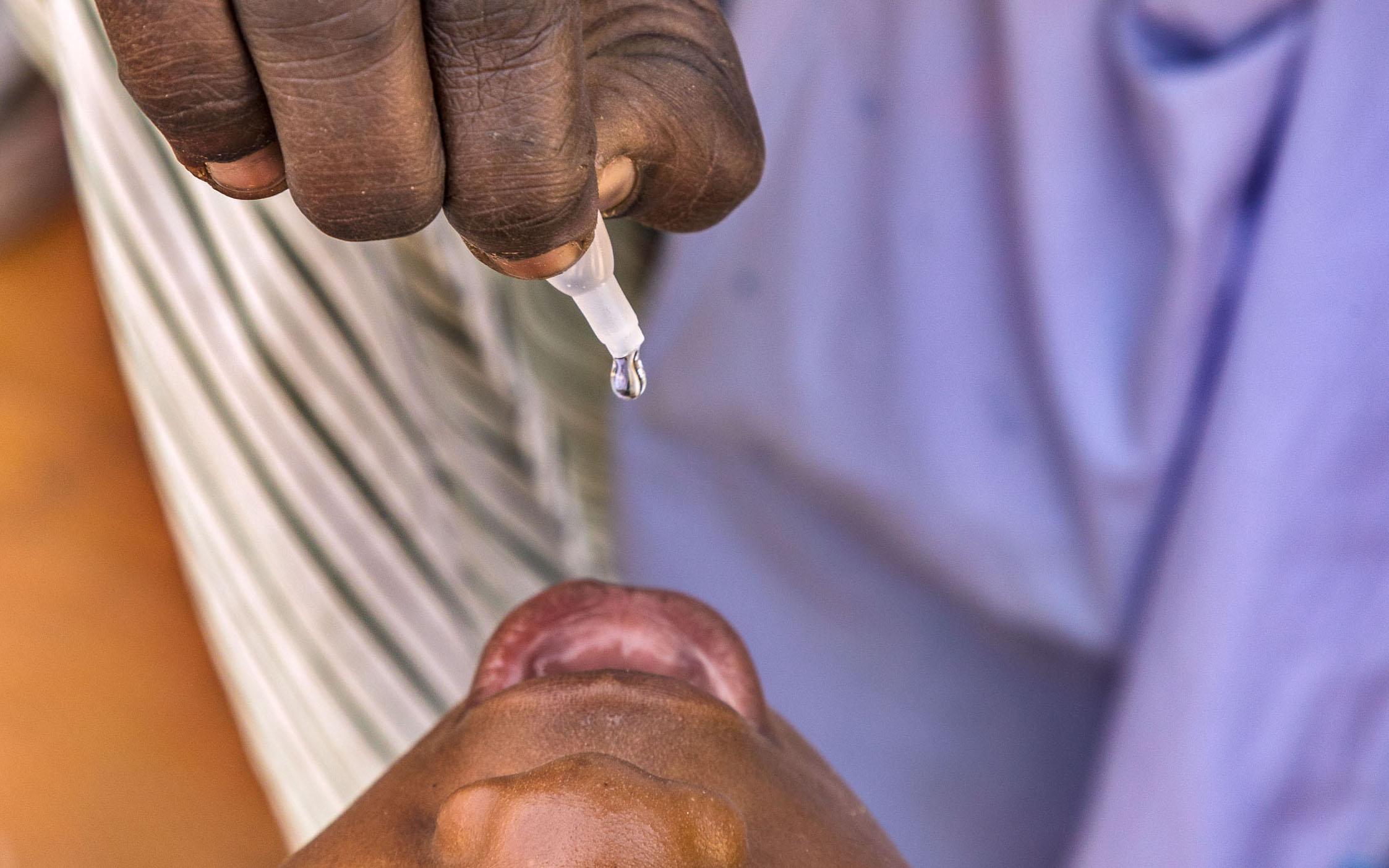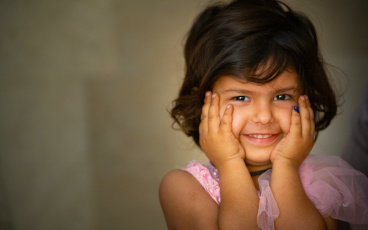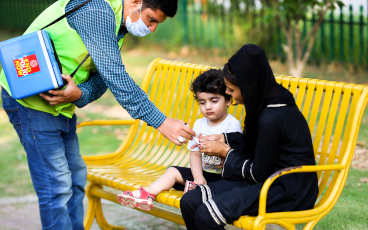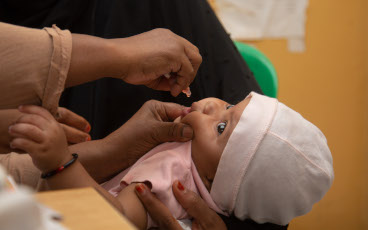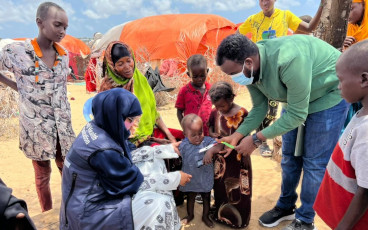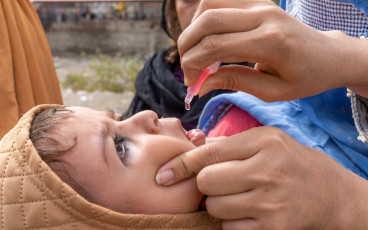Ending polio and yellow fever hand-in-hand in northern Nigeria
The strong polio eradication infrastructure in Borno is supporting Nigeria to vaccinate over eight million people against yellow fever.
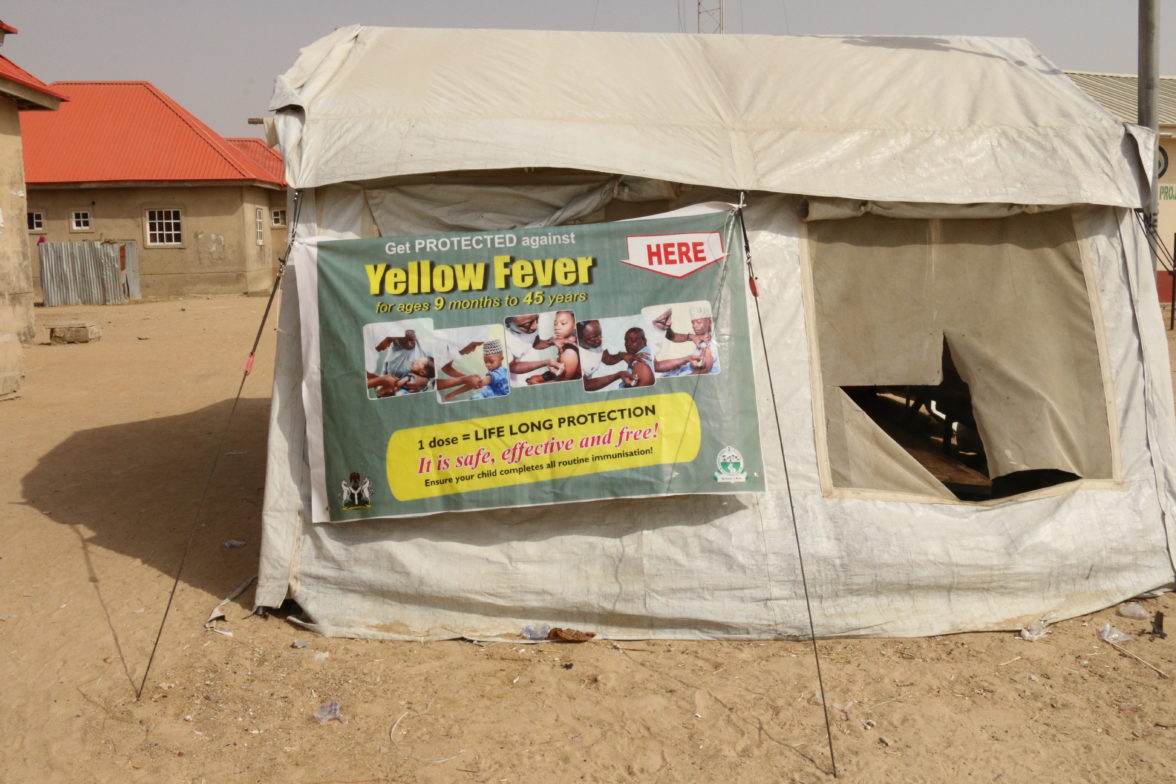
As he climbs out of his car and walks across to the entrance of Bakassi camp for internally displaced persons in Borno, northern Nigeria, Dr Terna Nomwhange is met by a familiar sight. Standing at the gates, greeting a tired, dusty family laden with possessions, is a team of polio vaccinators. As families arrive at this sea of shelters following a long, hard journey, these people offering polio vaccines are the first sign that they have reached a place of protection.
Not only are families in northern Nigeria facing insecurity, a humanitarian crisis and the threat of polio, but since September they have also been at risk from an outbreak of yellow fever. By early January 2018, a total of 358 suspected cases had been reported in 16 states, with 45 deaths recorded for 2017. In Borno, the ongoing conflict means that the health infrastructure on the ground to respond to the outbreak is limited to local government and the polio eradication infrastructure.
At the camp gates, the polio vaccinators give two drops of vaccine into the mouth of every child; but they also tell the parents where to go to get their yellow fever vaccination. As Dr Terna, who works for the WHO Nigeria polio eradication programme, walks further into the camp, he catches sight of the distinctive blue that signifies the uniform of a polio volunteer community mobilizer. As she emerges from the door of a shelter, he hears her reminding the family within to get their children vaccinated against polio, but also for the whole family to be vaccinated against yellow fever.
With weakened health system in parts of north eastern northern Nigeria, the infrastructure that is already on the ground to stop polio is providing the volunteers needed to support the yellow fever vaccination campaign. More than eight million people are being targeted with yellow fever vaccines in the states of Borno, Zamfara Kwara and Kogi states in 2018.
Vaccinating adults
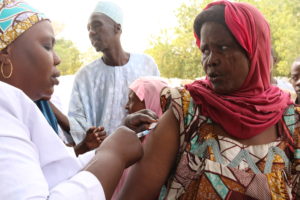
Regular polio vaccination campaigns reach children under five years of age with polio vaccines, as this age group is the most vulnerable to the virus. But reaching everyone between nine months and 45 years to protect them against yellow fever takes creative thinking. People who would not usually be vaccinated have to be mobilised to come to health clinics where they can receive that one shot of yellow fever vaccine that infers life-long protection.
This is where the polio infrastructure comes in. To prepare for the launch of the yellow fever vaccination campaign that took place at the beginning of February, polio experts supported the preparations by developing detailed microplans, mapping each community so that every individual can be vaccinated. Volunteer community mobilisers, well versed in educating communities about the risks of infection, used their skills to warn populations of the high mortality rates associated with yellow fever.
Surveillance
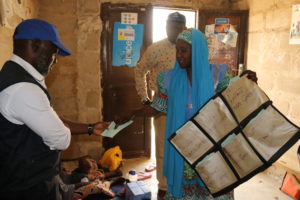
The polio surveillance system in Borno is already on high alert to identify any case of polio, even in conflict affected areas. “Surveillance remains everyone’s number one priority,” says Dr Terna. “While the polio infrastructure is doing everything it can to find any trace of polio, it is killing two birds with one stone by keeping an eye out for yellow fever as well. This is a win-win situation to stop both diseases.”
While surveillance focal persons move house to house, they are also raising awareness about the symptoms of yellow fever. When a potential case is found, the polio infrastructure is being used to collect blood samples and transport them to the national laboratory down the reverse cold chain, keeping samples at the correct temperature for testing.
Collaboration
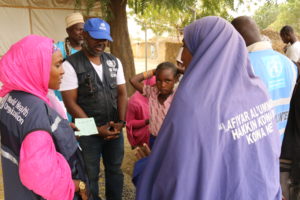
“What makes this campaign special is not just the fact that the strong polio infrastructure is helping to control other diseases, but also that it underscores what can be achieved with intersectoral collaboration and partnership,” said Dr Wondimagegnehu Alemu, WHO Country Representative to Nigeria. “Without the polio eradication infrastructure, a campaign of this scale would not have been able to take place.”
“Everyone is pulling in one direction – the government, partners and volunteers within communities – to protect any and every vulnerable person against polio and yellow fever,” says Dr Aliyu Shettima, Polio Incident Manager at the Emergency Operations Centre (EOC) in Maiduguri.
Support for immunization to the Federal Government of Nigeria through the World Health Organization is made possible by funding from the Bill & Melinda Gates Foundation (BMGF), Department for International Development (DFID), European Union (EU), Gavi, the Vaccine Alliance, Global Affairs Canada (GAC), Government of Germany through KfW Bank, Japan International Cooperation Agency (JICA), Korea Foundation for International Healthcare (KOFIH), Measles and Rubella Initiative (M&RI) through United Nations Foundation (UNF), Rotary International, United States Agency for International Development (USAID), United States Centers for Disease Control and Prevention (CDC) and World Bank.


